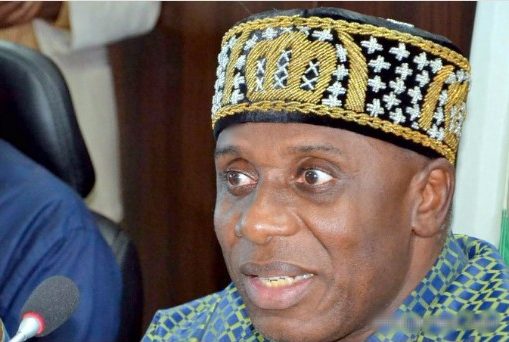
The Minister of Transportation, Rotimi Amaechi, has called for the support of the National Assembly in reviewing and amending many moribund laws and regulations guiding the management and operations of the maritime sector.
Amaechi made the call on Friday in Lagos at the opening of a two-day retreat organised by the House Committee on Ports, Harbours and Waterways, the Federal Ministry of Transportation and its agencies.
“Such reviews and amendments would make the maritime sector not only relevant but also capable of handling current challenges and developments in the industry,” the Minister, who was represented by the Permanent Secretary of the Federal Ministry of Transportation, Alhaji Sabiu Zakari, said.
He said that in this respect, some state governments had enacted legislations which were in conflict with the powers conferred on the Federal Government for the management and operations of ports and the inland waterways.
Amaechi said the ministry required the support of members of the Committees in the House of Representatives and the National Assembly for adequate allocation of annual budgets to implement maritime projects and programmes.
To grapple with the current challenges, and development in the maritime sector, the minister said the lawmakers needed to have a fair knowledge of the operations and management of the maritime sector.
“This is also why we are not only happy with the selected topics for discussion at this retreat but are equally happy with the pedigree of personalities of presenters and discussants chosen to handle the various topics,” he said.
According to him, the ministry, with the agencies, see the retreat as an opportunity to further deepen the existing good relations between the Ministry and the National Assembly, particularly the House Committees in charge of the maritime sector.
The Speaker of the House of Representatives, Yakubu Dogara, in a message to the retreat said he was aware of the very important Transport Sector Reform Bill pending before the National Assembly.
The speaker said, “These Bills include: the Port and Harbour, Nigerian Railway Corporation Act Amendment, NBIWA Act Amendment, the Council for the Regulation of Freight Forwarding in Nigeria (CRFFN) Act, and the National Transport Commission.”
He said the bills were all vigorously processed for passage into laws as part of the legislative agenda of the eight Assembly of the House of Representatives and as a veritable tool to get our economy out of recession.
Dogara said he was also aware of the international maritime conventions of which Nigeria was a signatory and which were in the National Assembly for ratification /domestication.
“We undertake to work cooperatively with the executive for speedy domestication of these treaties so that Nigeria could maximise the gains of these international legislations,” newsmen quotes the speaker as saying.
Dogara also proposed an Annual Maritime Seminar for legislators to be organised in partnership with the National Assembly.
He commended President Buhari for the giant strides he had made in the transport sector within such a short time, especially in the rehabilitation and revitalisation of the rail infrastructure as disclosed by oversight reports.
In his speech, the Chairman of the Committee on Ports, Harbour and Waterways, Patrick Asadu, emphasised the reservation of the House of Representatives on non-observance and compliance with the letters of agreements and contractual obligations duly entered into on behalf of the government by various agencies of government in the maritime sector.
Asadu said, “The issue of none or low implementation of budgets by the Ministries, Departments and Agencies (MDAs) and low revenue generation will be key factors in subsequent appropriations for our MDAs.”
“To agencies that do well, shall more be given in our budgeting exercises,” he said. “The committee shall vigorously employ all legislative powers at her disposal to ensure compliance with the terms of those agreements with private sector organisations both local and foreign.
“It can no longer be business as usual when we know the huge revenue and better service delivery achievable if these are observed. It is now Nigeria first before any other thing.”